Página 1 de 1
Screens - photogravure and offset-litho
Publicado: 12 Nov 2012 09:25
por Rein
The use of screens in photogravure and in offset-litho or typography serves quite different purposes. Hence, although measuring them is more or less the same in all printing methods, the reason why used is not the same.
In photogravure a screen is only there to keep the ink in its place and to prevent it from running off the cylinder! It has nothing to do with getting visual effects of darker or brighter places as in offset-litho or typography. In traditional photogravure with depth-variabilty the depth of a screen dot was determined by how dark or bright the original image was in that place. Offset-litho uses a surface-variable screen to get dark/bright effects!
To make things more complicated, we have to realize that photogravure with surface variable screen does also exist - the so-called autotypical screen photogravure - rarely applied for stamps and to be found mainly for the stamps of the USA! But not only!!
to be continued ....
Re: Screens - photogravure and offset-litho
Publicado: 12 Nov 2012 09:34
por Rein
The first Argentina stamps were issued in 1939 on the occasion of the UPU Congress been held in Buenos Aires. All postage stamps issued in the period 1939-1949 have screen R70 - i.e. 70 dots / cm measured diagonally:
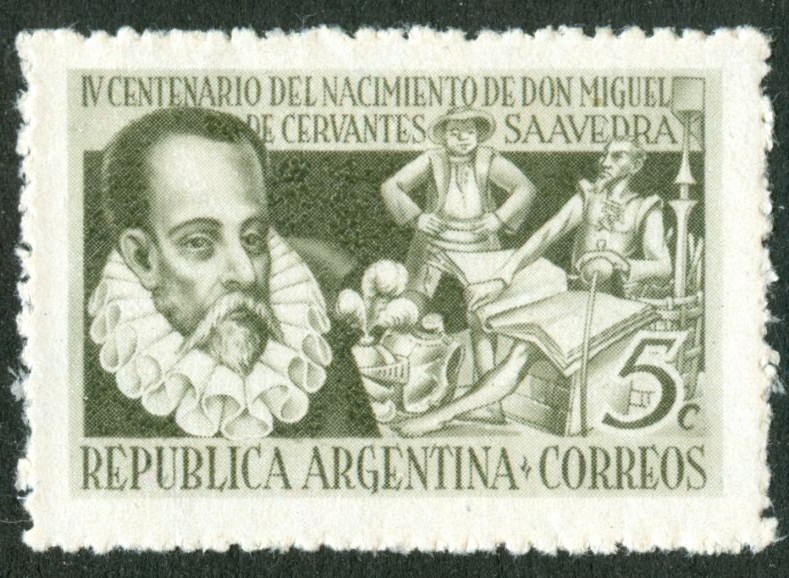
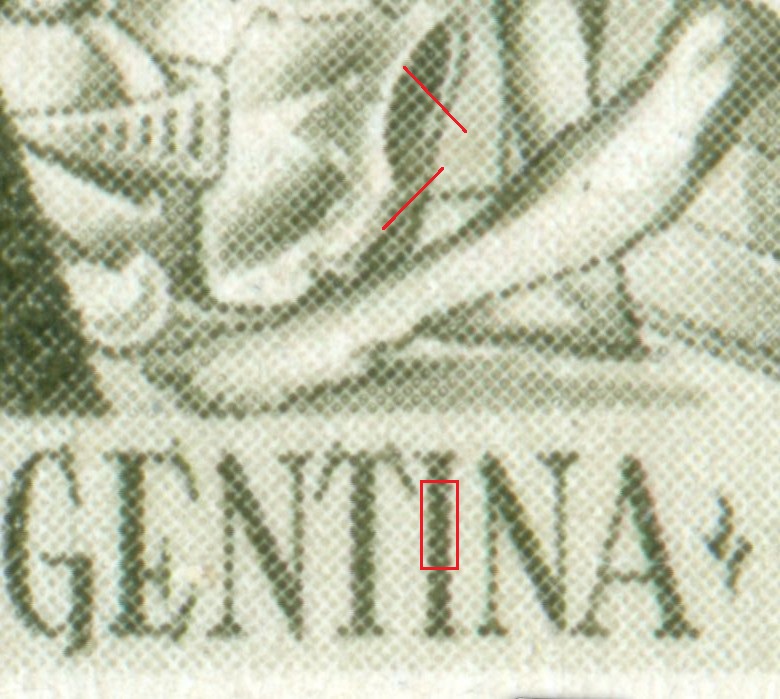
7 along the diagonal red lines; 5 vertically inside the red box. Why 5?? See below!
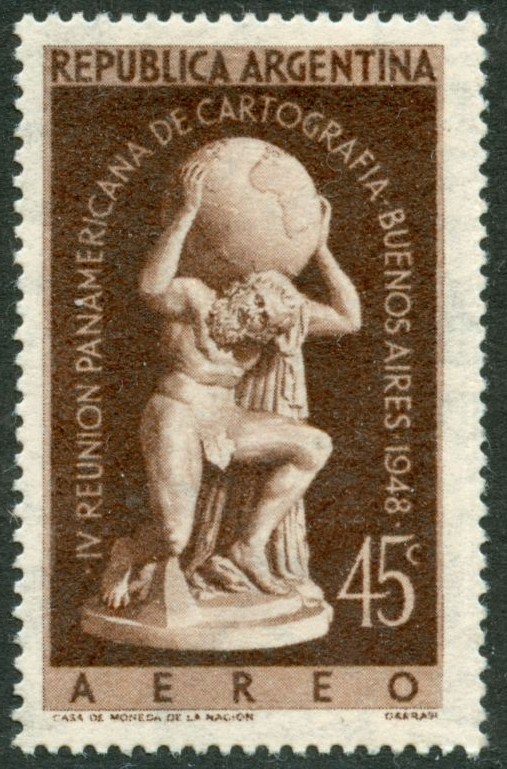
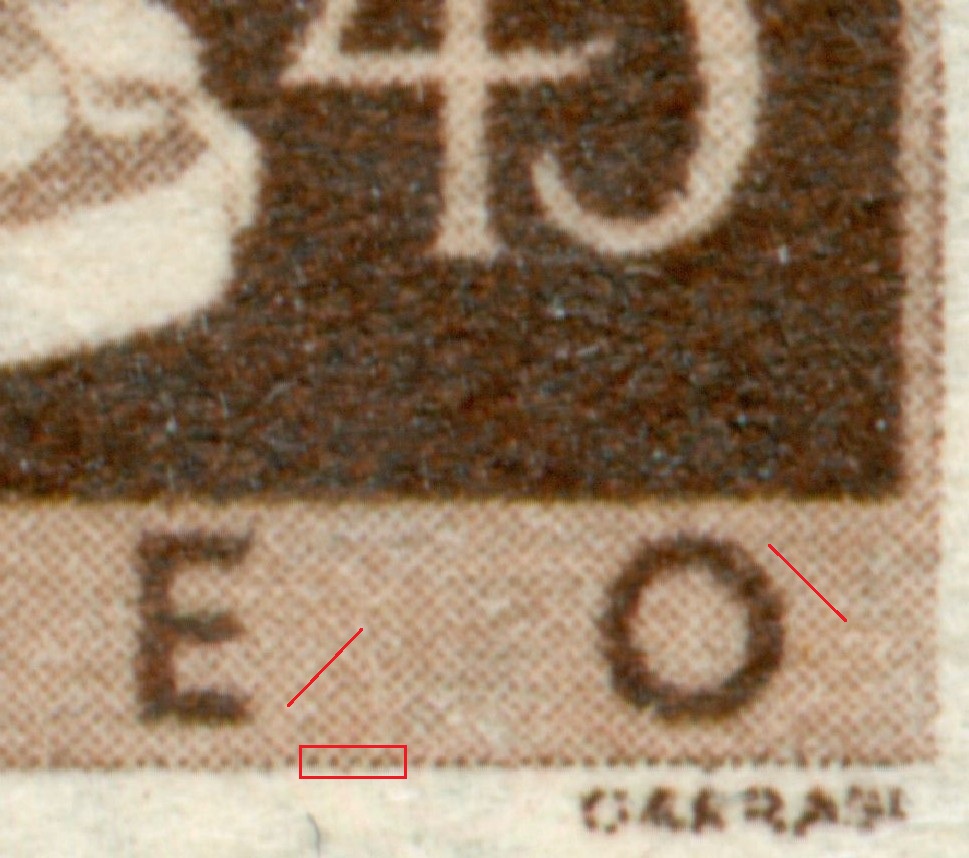
On a stretched diagonal we measure 7 dots / mm but if we measure only horizontally / vertically we need to find:
7 / squareroot (2) => 4,9497474... or more or less 5 dots!
to be continued ...
Re: Screens - photogravure and offset-litho
Publicado: 12 Nov 2012 12:59
por Rein
From 1950 onward most stamps have screen R100 - i.e. 100 dots / cm measured diagonally:
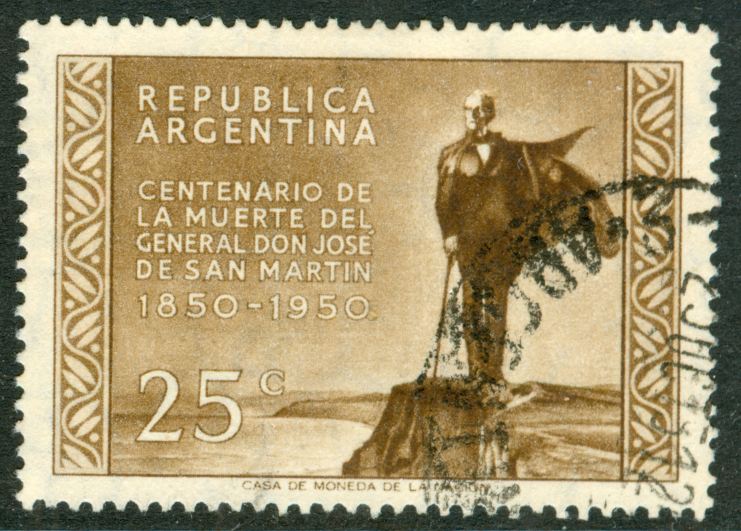
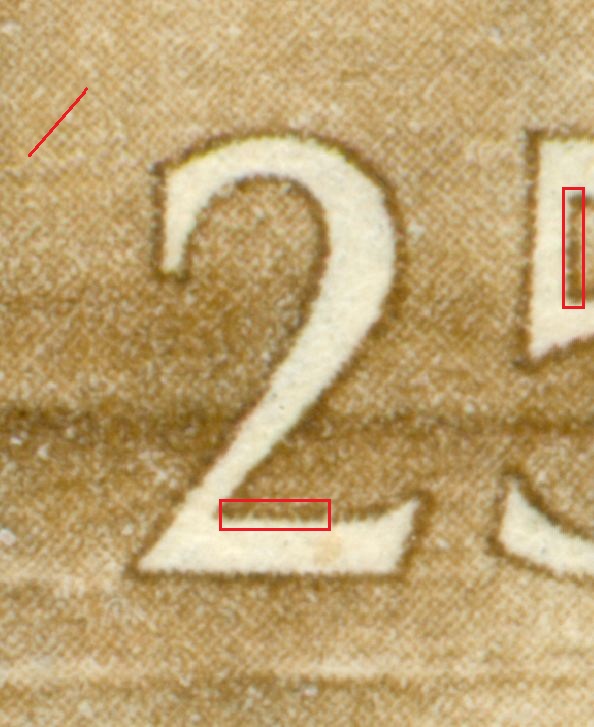
10 dots along the diagonal red lines; 7 horizontally or vertically inside the red box. Why 7?
10 / squareroot (2) => 7,071067... or more or less 7 dots!
to be continued ...
Re: Screens - photogravure and offset-litho
Publicado: 06 Dic 2012 21:54
por filatemusico
Hola Rein.
How many? please.
0.5 mm every line of the rule.
Gracias.
Jose Leal
Re: Screens - photogravure and offset-litho
Publicado: 06 Dic 2012 23:46
por Otin
José Leal:
Entiendo que se trata de una impresión offset; es así?
José Merlo
Re: Screens - photogravure and offset-litho
Publicado: 06 Dic 2012 23:57
por filatemusico
No, es fotograbado 1976 prensa Goebel de los años 50
José Leal
Re: Screens - photogravure and offset-litho
Publicado: 07 Dic 2012 05:48
por Rein
filatemusico escribió:No, es fotograbado 1976 prensa Goebel de los años 50
José Leal
José,
the thick lines of the rule don't make it much easier! 13/14 dots diagonally or 10 dots vertically means 141 dots / cm. I.e more than the usual 120/125 of that period! For photogravure in the Netherlands at the time! For Switzerland a had a similar gauge which I estimated at 150. The higher the resolution it will be more difficult to get it accurate. For offset-litho a dpi of over 600 is hardly measurable without microscopic enlargements.....
saludos, Rein
Re: Screens - photogravure and offset-litho
Publicado: 07 Dic 2012 22:14
por Otin
Rein:
It´s most hard to believe it is photogravure: In this system diagonal lines are blank and dots colored. In José Leal scan is exactly the contrary. Can you explain this?
José
Re: Screens - photogravure and offset-litho
Publicado: 08 Dic 2012 05:47
por Rein
Otin escribió:Rein:
It´s most hard to believe it is photogravure: In this system diagonal lines are blank and dots colored. In José Leal scan is exactly the contrary. Can you explain this?
José
José,
his scans are NOT of stamps but of the cylinder surface!
saludos, Rein
Re: Screens - photogravure and offset-litho
Publicado: 08 Dic 2012 14:36
por filatemusico
Esta la imagen escaneada 2400ppp

Las lineas blancas anchas verticales no existen en la placa son reflejo de la lampara del escaner, todas las lineas horizontales si están en la placa aunque más tenues, la placa en las partes lisas brilla como espejo, las marcas que estan donde comienza la agarradera si está en la placa al parecer es un daño pero no se de que tipo he buscado alguna estampilla que presente esta marca pero no la he encontrado.
https://qzczkq.bay.livefilestore.com/y1 ... jpg?psid=1
wide vertical lines are not in the plate they are a reflection of the lamp of the scanner, all horizontal lines are part of the plate but more tenuous, smooth parts of the plate shines like a mirror, marks where the handle of the cup begins are there, this seem a flaw but have not found that in a stamp.
Hasta luego
José Leal






